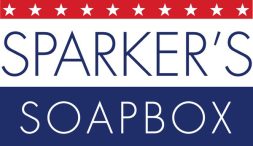A recent Time magazine article called “The Uncertainty Principle” by Zackary Karabell reviews the conventional wisdom that businesses aren’t hiring because of uncertainty about government policy:
The best expression of this thesis came from the U.S. Chamber of Commerce, which released the results of a poll of small-business owners in late September concluding that uncertainty over health care was holding back the recovery: “Nearly 8 in 10 small business leaders expect their costs to increase as a result of the new law, and a majority say they will be less likely to hire new employees … Small business leaders who are being counted on to grow jobs are deeply unsettled about the present and concerned about the future, and a tremendous amount of that uncertainty is due to the new health care law.”
Let’s not forget uncertainty about taxes and whether Congress will extend some, all or none of the Bush tax cuts of 2001 and 2003. When Congress adjourned to focus on the midterm elections rather than decide on tax rates for 2011, Republican House leader John Boehner jumped on the uncertainty bandwagon: “The question right now that the American people are asking is, Where are the jobs? And we don’t have jobs … because of uncertainty affecting families and small businesses. We can help clear out … this uncertainty by extending all of the current tax rates and cutting spending.”
Karabell’s assessment? “Well, poppycock!”
Large businesses aren’t hiring for basic reasons. They are highly profitable even with fewer workers. They have spent billions on technologies that have made them more efficient and productive. And they are adding jobs abroad–where the growth is. They are certain that they can service a still highly affluent American market with fewer workers. In fact, the companies of the S&P 500–the epitome of corporate America–are poised to report very strong earnings for the third quarter, continuing a two-year run in which they’ve reaped hundreds of billions in profit even as employment rolls have shrunk.
Small businesses aren’t hiring mostly because economic activity is muted, consumers are paying off debts while saving more and spending somewhat less, and loans for expansion are difficult to obtain.
And uncertainty isn’t the reason the housing market is still a mess. Many of the jobs lost in the past two years were in construction, housing and financial firms connected to real estate. They aren’t coming back until housing demand perks up. That won’t be anytime soon.
Doesn’t all that sound right to you? And if so, then why is this the conventional wisdom?? Karabell:
The business community and its lobbyists and political allies–Republicans mostly, with a fair number of Democrats–don’t want to acknowledge the real reasons for the lack of hiring because that would make them responsible for solutions. By raising the cry of uncertainty, they make it seem as if the only thing holding job growth back is bad policy emanating from Washington….
Karabell brings us back to the basic economics of supply and demand:
[Businesses] have no incentive to [create jobs] unless there is a robust domestic economy that will justify more bodies. Government can help or hinder such robustness, but it cannot create it.
I think Karabell is right. It’s not about uncertainty about government policy. Extending the Bush tax cuts or repealing health care reform won’t do it. If we want to see an increase in the supply of jobs, someone needs to figure out how to stimulate demand.
Just because we hear the same thing over and over and over again on cable TV, doesn’t make it true.
During this highly-partisan time filled with political posturing, it’s important to remember to challenge conventional wisdom. As hard as it is to remember to do so – do so we must.
